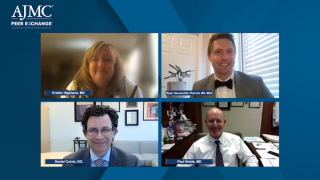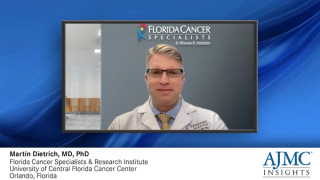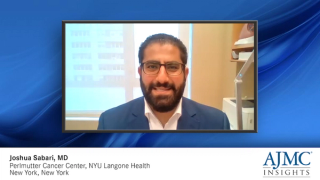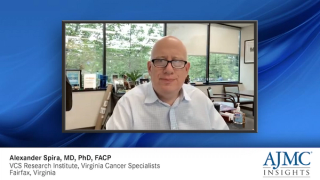
Small Cell Lung Cancer
Latest News

Latest Videos

CME Content
More News

A recent study stresses the importance of routine CT screening for improving lung cancer survival outcomes.

Despite Improvements in Lung Cancer Screening, Increased Efforts Still Needed to Address Disparities
The State of Lung Cancer 2022 report issued by the American Lung Association illustrates aspects of diagnosis and care that require additional attention to address disparities and increase nationwide screening and treatment engagement while reducing risk factor exposure.

Lung cancer is the number one cause of cancer-related deaths among women in the United States, yet relatively little research funding is spent on the issue, the authors of a new study say.

The FDA approved cemiplimab (Libtayo) in combination with platinum-based chemotherapy for the first-line treatment of advanced non–small cell lung cancer (NSCLC) with no EGFR, ALK or ROS1 aberrations.

A new report underscores how treatment decisions for non-small cell lung cancer (NSCLC) affect patients’ health care utilization and costs.
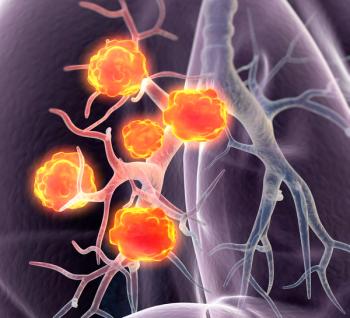
Immune checkpoint inhibitors, either alone or in combination with chemotherapy, were associated with better outcomes in non–oncogene-addicted non–small cell lung cancer (NSCLC).
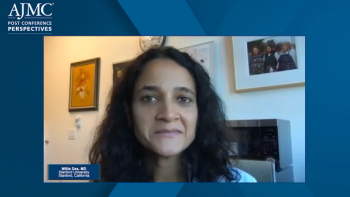
Dr Millie Das, MD discusses updates from the 2022 World Conference on Lung Cancer regarding non-small cell lung cancer (NSCLC).

Millie Das, MD, outlines the JAVELIN Lung 100 trial and shares insights on strategies and data interpretation from the trial.

Among the challenges are a lack of reliable biomarkers and resistance in some patients who have squamous cell carcinoma (SCC).

The HUDSON trial is explored by Dr Das as she provides an overview of the study and offers key considerations regarding results.
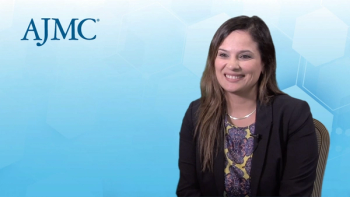
Lung cancer screening rates remain low nationwide, and there is a need to better educate patients and clinicians about the importance of screening, said Ticiana Leal, MD, associate professor, director of the Thoracic Medical Oncology Program, Department of Hematology and Medical Oncology, Emory University School of Medicine.

Molecular differences may help explain geographic gaps in outcomes.

A new report finds despite reforms to the country’s health care system, many patients in China with lung cancer experience stress, and sometimes health consequences, on account of the disease’s financial burden.

In the absence of a head-to-head trial, the researchers compiled data from randomized controlled trials of the 2 PD-1/PD-L1 inhibitors in patients with advanced disease and PD-L1 ≥ 50%.

Millie Das, MD, shares key takeaways from her presentation regarding cost-effective strategies and payer considerations related to the treatment of NSCLC.

Targeted therapies have improved outcomes for patients with lung cancer, but the goal needs to be tailoring the right therapy to the right patient, said Ticiana Leal, MD, associate professor, director of the Thoracic Medical Oncology Program, Department of Hematology and Medical Oncology, Emory University School of Medicine.
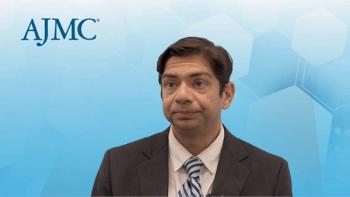
During the Quality Cancer Care Alliance Summer 2022 National Leadership Summit, Hatim Husain, MD, discusses how HER2 exploration in lung cancer differs from that in breast cancer, as well as novel therapies being explored for HER2 and other disease targets.

IMpower010 trial data may influence a significant evolution in treatment of non–small cell lung cancer.

With these new findings coming from the EMPOWER-Lung 3 trial, the anti-programmed cell death-1 inhibitor cemiplimab is now just the second of its kind to show efficacy in these patients as both monotherapy and as a combination regimen, regardless of histology.

Biomarker testing should be done on all patients with an initial diagnosis of advanced nonsquamous non–small cell lung cancer, but the testing rates in the real world are lower than they should be, particularly for underserved or minority populations, said Ticiana Leal, MD, associate professor, director of the Thoracic Medical Oncology Program, Department of Hematology and Medical Oncology, Emory University School of Medicine.
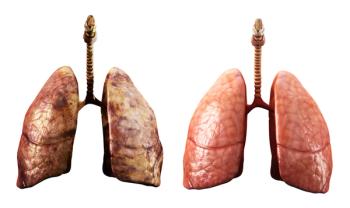
A study carried out at 4 health care systems found rates of stage I lung cancer increased, and rates of stage IV cancer decreased, once screening was initiated.
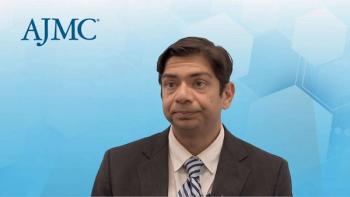
Hatim Husain, MD, discusses how National Comprehensive Cancer Network (NCCN) treatment guidelines adjust to meet the treatment needs of patients with lung cancer.

An updated national coverage determination from CMS about lung cancer screening has some stakeholders concerned that the quality of decision-making tools used by providers and patients may weaken.

Hatim Husain, MD, associate professor in the Department of Medicine at UC San Diego, discuses must-haves for successful biomarker testing in lung cancer—in particular, non–small cell lung cancer (NSCLC)—and how the field is adapting to the targeted treatment needs of its patients.
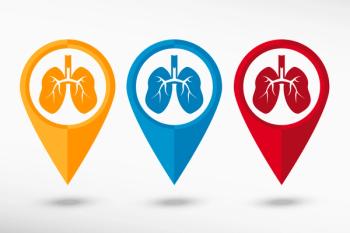
A significant subset of patients continues to receive chemotherapy monotherapy despite the availability of newer approaches, including programmed cell death protein-1 (PD-1) and programmed death ligand-1 (PD-L1) inhibitors.





